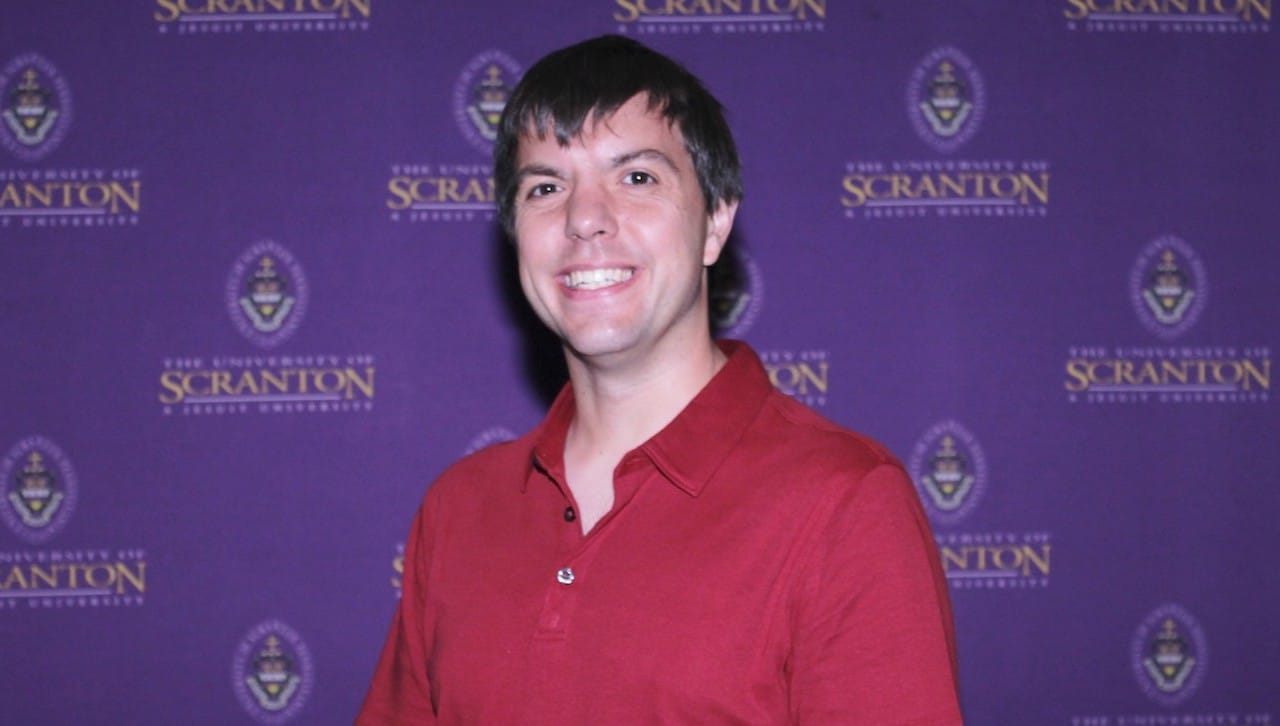University of Scranton issued the following announcement on Dec. 17.
Nathaniel Frissell, Ph.D., assistant professor of physics and electrical engineering at The University of Scranton, was awarded a highly-competitive National Science Foundation (NSF) CAREER grant that integrates original research on the effects of lower and middle atmospheric waves on ionospheric disturbances with course instruction and undergraduate and graduate research and education. The five-year $616,054 NSF CAREER grant is a special funding program that is only available only to early-career, tenure track faculty members and must include tightly integrated research and education components.
In a press release, U.S. Representative Matt Cartwright applauded the NSF’s $616,054 federal grant awarded to Dr. Frissell.
“America’s leadership in technology is due in large part to the work that goes on in places like the University of Scranton,” said Rep. Cartwright, a member of the House Appropriations Committee. “This kind of research not only moves us forward on innovation, the students who take part in it can then become part of a highly skilled workforce that attracts space and technology businesses to our area. I applaud Dr. Frissell and The University of Scranton for their pioneering work. In Congress, I will continue to support National Science Foundation initiatives that lift up Northeastern Pennsylvania’s best minds.”
Dr. Frissell’s NSF CAREER proposal builds on his previously awarded $1.3 million NSF grant to develop modular, ground-based space science observation equipment and software that will be used to collect and analyze data from an international network of amateur (ham) radio users, which includes a newly formed a student radio club at Scranton.
“Space weather significantly impacts important modern technological systems, and the effective operation of such systems is dependent on the state of the ionosphere. Understanding the connection between traveling ionospheric disturbances and atmospheric gravity wave sources in the lower atmospheric regions could improve the ability to predict the ionospheric state and thus its impact on navigation and communications systems,” said Dr. Frissell in the introduction of his grant proposal.
Through the NSF CAREER grant, Dr. Frissell will apply sophisticated, physics-based atmospheric/ionospheric models to extensive new data collected through in international collaboration of ham radio operators using “Personal Space Weather Stations” that he helped to develop in order to better understand the connection between ionospheric disturbances and atmospheric gravity wave sources. The new funding supports two graduate master of science in software engineering research assistants at Scranton who will conduct data analysis, and run models and code implementation using a new Linux-based analysis server that this proposal will also fund.
“The master’s theses software engineering students will include both a software engineering component and a science component,” said Dr. Frissell. “These interdisciplinary theses will maximize the students’ options after graduation. In addition to being well prepared to work as a software engineer, they will have experience for jobs in any of the science fields related to this project.”
In addition, Dr. Frissell will introduce physics and engineering students to space physics research and develop the skills needed to conduct this research through an introductory physics course for first-year students and, at a more sophisticated level, through an upper-level undergraduate Introduction to Space Science and the Atmosphere course he teaches. The grant also funds a summer undergraduate research assistant and encourages other opportunities for student research.
“Research opportunities will be made available to any interested student, with priority given to students majoring in physics, electrical engineering, computer science, or a related field,” said Dr. Frissell. “It is expected that this research will generate multiple peer-reviewed articles that will be published in journals such as Geophysical Research Letters, Journal of Geophysical Research: Space Physics, Space Weather, and Radio Science, with some articles authored or co-authored by a master’s or undergraduate student.”
Under the grant proposal, Scranton’s amateur radio club W3USR will also play a role in disseminating the information about the research on campus and to the broader community.
Dr. Frissell joined the faculty at Scranton in the fall of 2019. He earned a doctorate and a master’s degree in electrical and computer engineering from Virginia Tech in Blacksburg, and a bachelor’s degree in physics and music education from Montclair State University in New Jersey. He is the founder and lead organizer of the international citizen science space physics research collective known as the Ham Radio Science Citizen Investigation (HamSCI.org).

Original source can be found here.


 Alerts Sign-up
Alerts Sign-up